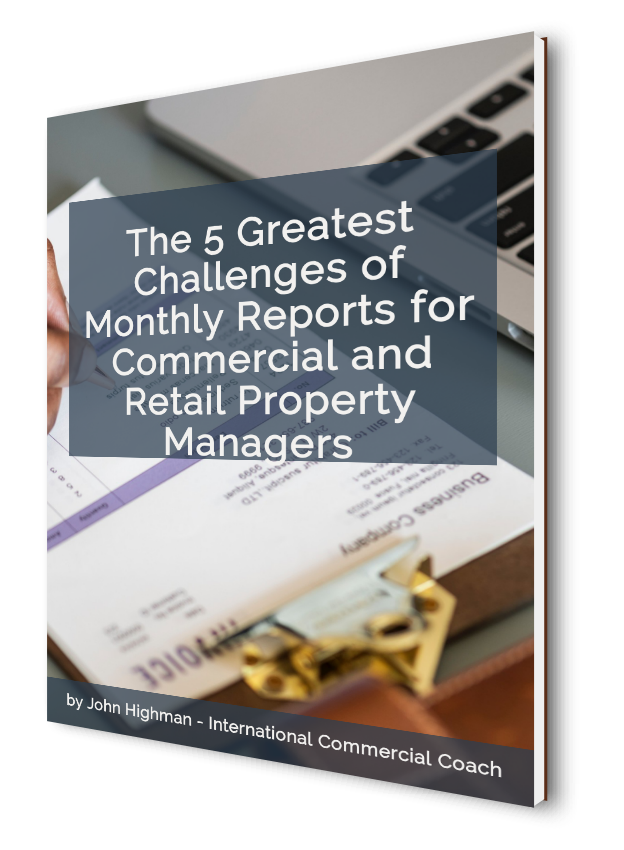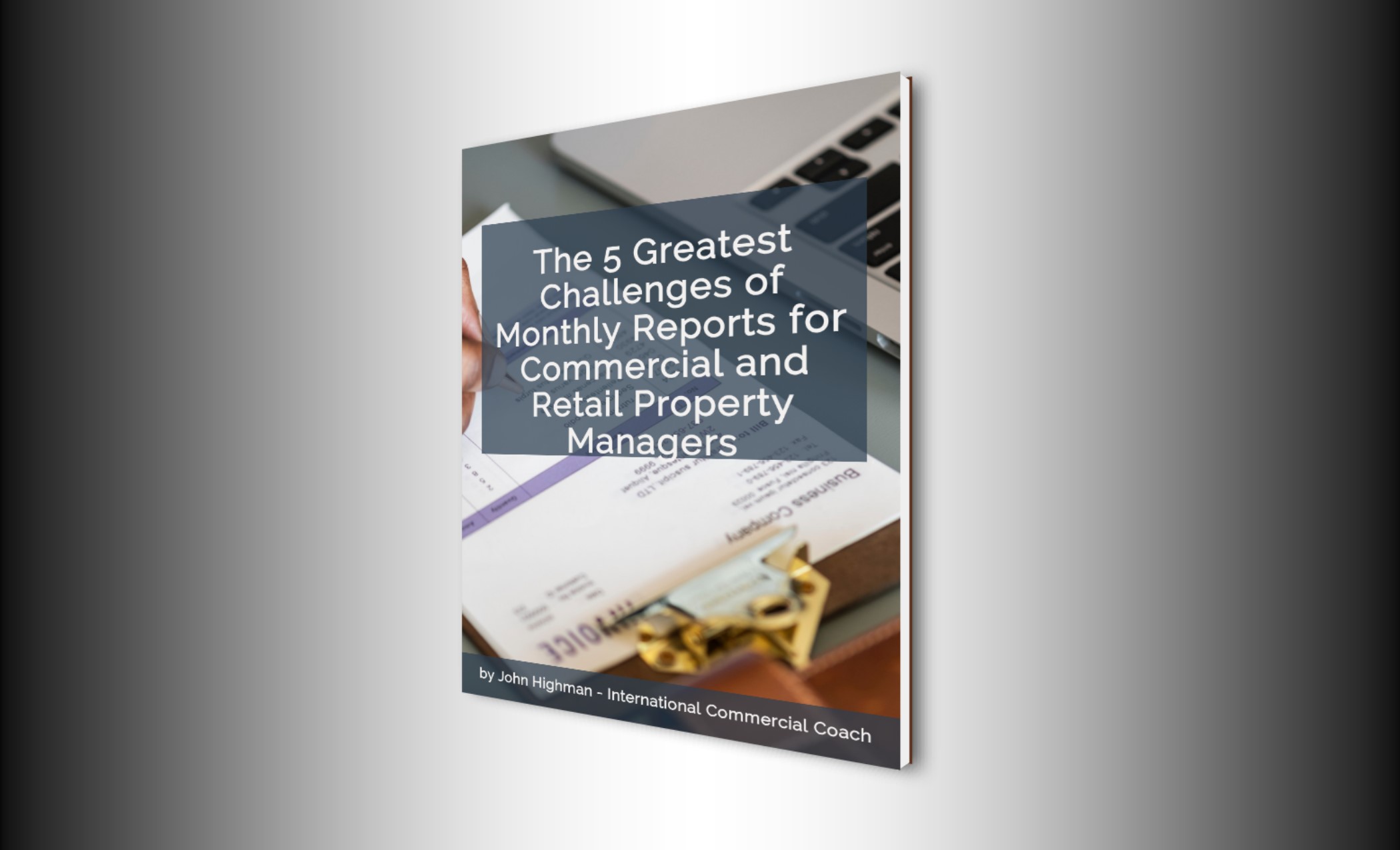The 5 Greatest Challenges of Monthly Reports for Commercial and Retail Property Managers Today
The end of month reports for Commercial and Retail Property Managers come around all too frequently. Add to that fact the sheer volume of properties and tenants managed, and you have a major recurring workload problem of property control and reporting. Some property managers ‘stress out’ and leave the industry all too soon; it’s a known fact.
Why is this? Why do some property managers hold or control too many properties, and or too many tenants? That issue generally evolves from low fee recoveries, and or the need to minimise the operational overheads for the division. If you are going to manage a good quality asset, make sure that the fee is realistic from the start; you cannot ‘cut corners’ in property management services.
Balance The Property Managers Portfolio
What should you watch with this industry fact? The portfolio workload must be realistically structured and balanced so that the monthly reports are accurate, comprehensive, and correct. Failure to do that can see the landlords not getting what they deserve in property control, and the tenants in the managed properties receiving less than desirable feedback and or support. That’s when things start to go wrong with property performance.
Unhappy landlords and tenants can ‘undermine’ the property management division and or the property managers ability to perform professionally.
The Biggest Challenges in Property Management
The biggest challenges in commercial and retail property management end of month reporting are usually one or more of these:
- Timeliness – this is getting the end of month work ready for processing and the reports compiled in a format that the landlords require. This time focus can be a work volume issue of reasonable size in the first week of each new month. Prepare for it.
- Accuracy – there are lots of numbers to check at any end of month report time, including income, expenditure, budgeting, plus lease management, maintenance, and property planning issues. Ensure that all elements of the reporting process are accurate before the documents are compiled and or sent out.
- Interpretation – don’t send out unchecked reports and end of month financials. Depending on the property and the client, two people are good for that checking process. There will quite likely be some errors or omissions so look for them and resolve them before the client or landlord sees them.
- Recommendations – there is no point in sending out financials and maintenance reports to your landlord clients if the associated comments and recommendations are lacking in any way. High-quality landlord reporting for your managed properties involves good communication at all levels.
- Feedback – within a week of sending out your monthly reports, always contact the landlord client to discuss and review the provided end of month reports.
Positive Actions to Take
There are other things that you can do. Try these ideas for starters:
- Don’t manage low-grade properties that are ‘management intense’ and or properties with low fees.
- Don’t take on properties where the landlords expectations are excessive in reporting and or property control.
- Avoid high-risk property management assets that are labour intense or identified as potential ‘problems’ from the start
- Employ property managers that are of some relevant experience and or skill
- Put in place some ‘safety’ indicators to watch the asset control and management systems for both managers and properties in your portfolio
- Talk to your landlords and tenants frequently to engage in good communication and encourage feedback. Keep notes of all agreements, instructions, and comments.
- Document all instructions, observations, telephone calls, reports, and meetings accurately so you can protect against ‘misunderstandings’ and or lack of responses between people
- Check every report, financial statement, and communication thoroughly before sending out
- Ensure that the chosen property manager for a client is a ‘good match’ in experience and knowledge
- Create a ‘checklist’ approach to the monthly workload of all property managers and apply that ‘checklist’ across the entire portfolio
- Choose and use a good quality property management software system that matches the property, the portfolio, and the landlord requirements
So, there are real challenges at the end of the month in the reporting requirements for most commercial and retail property managers. The complexity of any managed property will add to the workload. Understand a property and a client for what is required and structure control systems to suit.







